“He Cherished Her,” Friend Says — State Lab Finds Accidental Leak; Police Drop the Case
I vividly remember the day my husband died. My phone wouldn’t stop buzzing—tribute posts, old photos of Jerome smiling, captions like “He cherished her till the end.” But beneath those loving words, a darker conversation brewed. Comments questioned the gas explosion that took his life. Some hinted I wasn’t just a widow—I was a suspect.
PAY ATTENTION: stay informed and follow us on Google News!

Source: UGC
The fire department called it a domestic accident, but gossip gave it a sinister twist.
“How come she survived?” “Why was the valve open?” “Did they fight that night?”
By the time the police arrived, the story had already been written online.
I stood barefoot outside our burned kitchen, smoke still curling from the windows, watching my neighbours whisper.
Like and share our Facebook posts to support the KAMI team! Share your thoughts in the comments. We love reading them!
When Officer Dela Cruz approached, notebook in hand, he gave me a slow, unreadable smile. “Ma’am Maria,” he said, “we just need to ask a few questions.”
The world had turned on me, and I hadn’t even buried my husband yet.

Source: Getty Images
Jerome and I met three years ago in Manila during a friend’s wedding rehearsal. He was the best man—confident, funny, slightly disorganised in that charming way that made women giggle and men roll their eyes. I was the maid of honour, still recovering from a breakup that ended just before the pandemic.
We didn’t plan to fall in love, but fate had its mischievous way.
Our courtship was slow, steady, and hopeful. He worked as an IT officer for a logistics company; I was a junior high school teacher. We saved, prayed, and built dreams out of cheap tiles and late-night instant noodles.
Our first apartment was a one-bedroom in Quezon City—tiny, noisy, but ours. When the landlord raised the rent, we couldn’t move, so we adjusted. We learned to share space, laughter, and sometimes anger.

Source: Getty Images
Jerome had a temper—not a violent one, but a fiery one. He would raise his voice when frustrated, and I’d retreat into silence. Later, we’d reconcile over a cold Coke and a movie.
Neighbours sometimes heard the arguments, but they also saw the reconciliations—the hand-holding, the laughter in the courtyard, the small acts of care that made us, us.
After our first anniversary, Jerome began discussing the idea of opening a small business—selling refurbished phones. Money was tight, but he was ambitious. I supported him, even when it meant skipping small outings or borrowing to keep the house running.
Then came the power cuts, the generator fumes, and the gas cylinder we bought secondhand from a neighbour. It was cheaper, and Jerome insisted it worked fine.
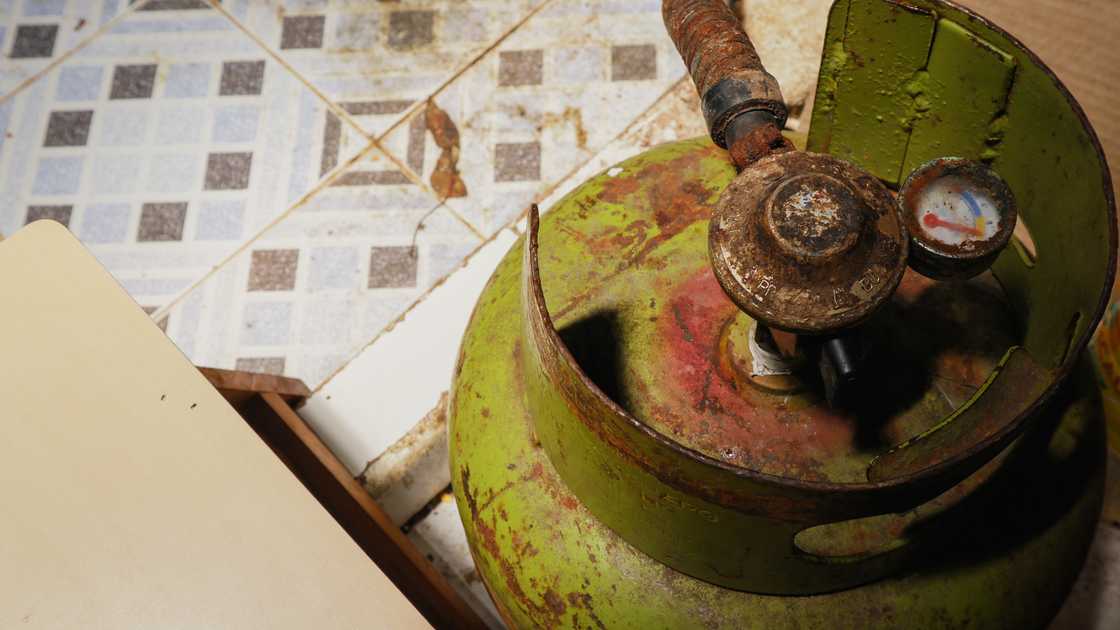
Source: Getty Images
Once, we woke up at midnight to the faint smell of gas, and Jerome laughed it off, saying it was probably from the neighbour’s flat. Another time, the lighter clicked twice before catching a flame, and I remember teasing him that one day he’d burn the stew before it even started. We were young, careless, and convinced that love made us untouchable.
I remember how he loved to cook on weekends, apron tied too tight, humming old Tagalog love songs. He would chase me out of the kitchen, saying, “Madam teacher, go and rest.” I would sit in the living room pretending to mark scripts while secretly watching him. The way he wiped sweat from his brow, the way he smiled when he caught me staring—it all felt like forever.

Read also
Andrea Brillantes says she’s happy “third wheeling” this holiday season, enjoys being single
In hindsight, that was our first mistake.
When I think back now, I see two young people in love, trying too hard to prove they could survive Manila together.
We had no idea how fragile that survival was.
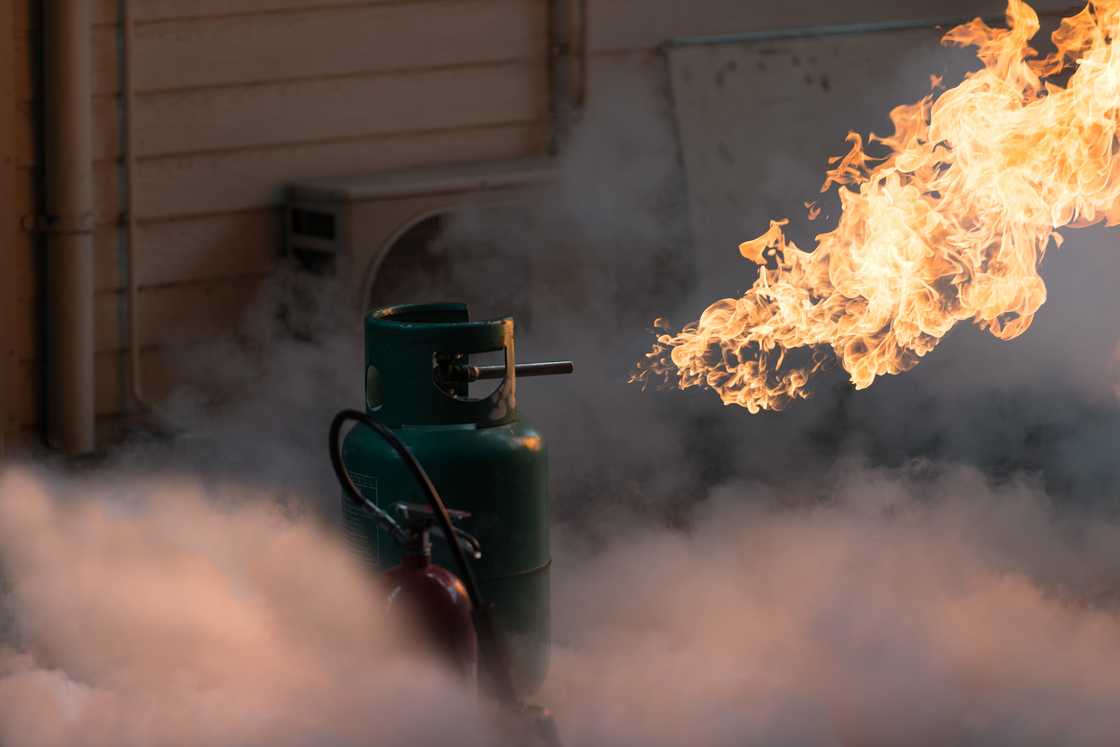
Source: Getty Images
Then came the explosion.
It didn’t begin with a bang. It started with silence—the kind that makes you pause mid-sentence. I remember walking into the kitchen, hearing the faint hiss, the smell of gas wrapping around me like invisible smoke.
colourlessJerome stood by the stove, frowning at the lighter that refused to spark. I shouted his name, but the world answered first.
A burst of orange swallowed the air, glass shattering like rain. I was thrown backwards, my head hitting the wall, flames licking the curtains, the ceiling cracking open with a roar. Everything after that was colourless, distant, and silent.
The morning after the explosion, I woke up in the hospital, my arm bandaged, the air thick with disinfectant. My ears rang, and when I turned, I saw Officer Dela Cruz and a nurse standing near the door.

Source: Getty Images
“Mrs Maria,” he said gently, “your husband didn’t make it.”
The words didn’t land. They hovered, cold and unreal.
He continued, “We’ll need a statement. It looks like a gas leak, but we have to confirm.”
I nodded weakly, tears sliding down without sound.
Two days later, I was discharged. But when I got home, something felt wrong. My phone was flooded—not with condolences, but suspicion.
Someone had posted a thread on X (Twitter): “Sources say the gas valve was turned intentionally. Wife escaped before blast.” It had over 5,000 shares.
My heart dropped.
I tried to breathe, but every inhale burned. The curtains still carried the scent of smoke. The neighbours avoided my gaze, whispering behind drawn blinds.
The street children who once called me “Ate Maria” ran when they saw me. It was as if grief had a smell, and I wore it.
My hands trembled as I scrolled through my phone, each notification another stone sinking me deeper into disbelief.

Source: Getty Images
By afternoon, reporters hovered outside our compound.
My friend Liza called in tears. “Maria, don’t open your door to anyone. They’re saying you killed him.”
Killed him?
I sat on the floor of our empty living room, staring at the soot-stained walls. My wedding photo, half-burnt at the edge, smiled mockingly back.
When Officer Dela Cruz returned for more questions, I was shaking.
“Did you and your husband quarrel before the incident?”
“Yes,” I whispered. “But not like that. He was frustrated about the generator. He said I forgot to close the gas valve. I told him I didn’t.”
He nodded slowly, pen scratching. “Neighbours said they heard shouting,” he added.
My throat tightened. “We argued, but we made up. He was cooking noodles before I went to the bedroom. I smelled gas, shouted his name, and then—”
Boom.
That was all I remembered.
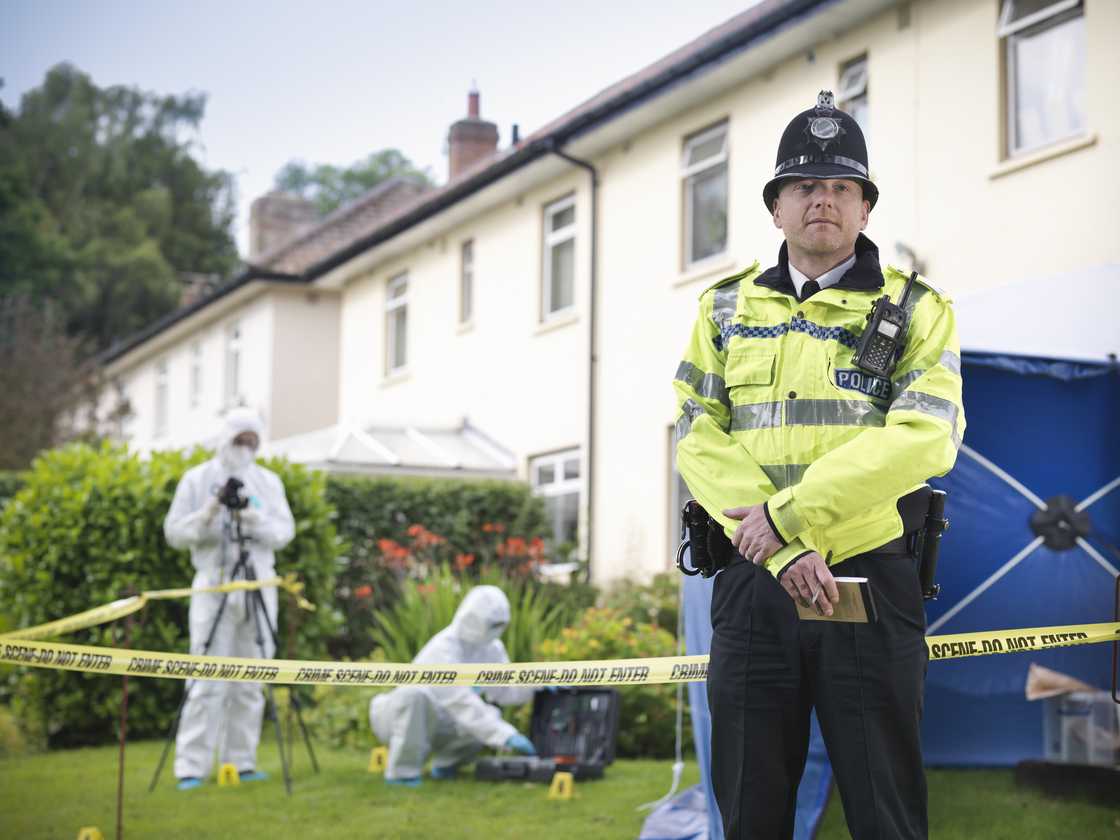
Source: Getty Images
By the next week, police had sealed the flat for forensic review. Rumours had now gone national—TV panels debating “domestic tension” and “emotional abuse.”
One headline read: “He cherished her, friend says — but did she cherish him back?”
I broke down.
Even my colleagues from school sent polite but cautious messages. Some avoided me altogether.
Officer Dela Cruz called me to the station when the investigation stretched into its second week. “We need to cross-check something,” he said, face neutral.
On his desk were lab reports, residue samples, and photographs of swabs from the gas cylinder. “The leak originated from the connector,” he said. “But the threads show manual loosening before ignition.”
I blinked. “Meaning?”
He didn’t answer.
“Meaning someone tampered with it,” I said, voice trembling.
His eyes softened. “We’ll know soon. But Mrs Maria… if you remember anything unusual, tell us.”
As I walked out, my phone buzzed again—a message from an unknown number: You’ll pay for what you did to Jerome.

Source: Getty Images
That night, I locked every window and prayed for morning.
The truth came quietly, not with fanfare, but with relief so deep I collapsed when I heard it.

Read also
Jake Ejercito pays tribute to Juan Ponce Enrile: “He has found his own place in our history books”
Three weeks after the incident, forensic results arrived from the state lab. The cylinder, pipe connector, and cooker bore traces of corrosion and gas residue consistent with a pressure leak—not sabotage.
Jerome had tried to tighten it himself that morning using pliers, unaware he had damaged the rubber seal. The fumes built up during the blackout, and when he struck the lighter—
It ended.
Officer Dela Cruz called me into his office, the corners of his lips lifting faintly as he said, “Ma’am Maria, you are officially cleared. It was an accident.”
I broke down in his office, crying until the uniformed men outside pretended not to hear.
“People said I killed him,” I murmured.
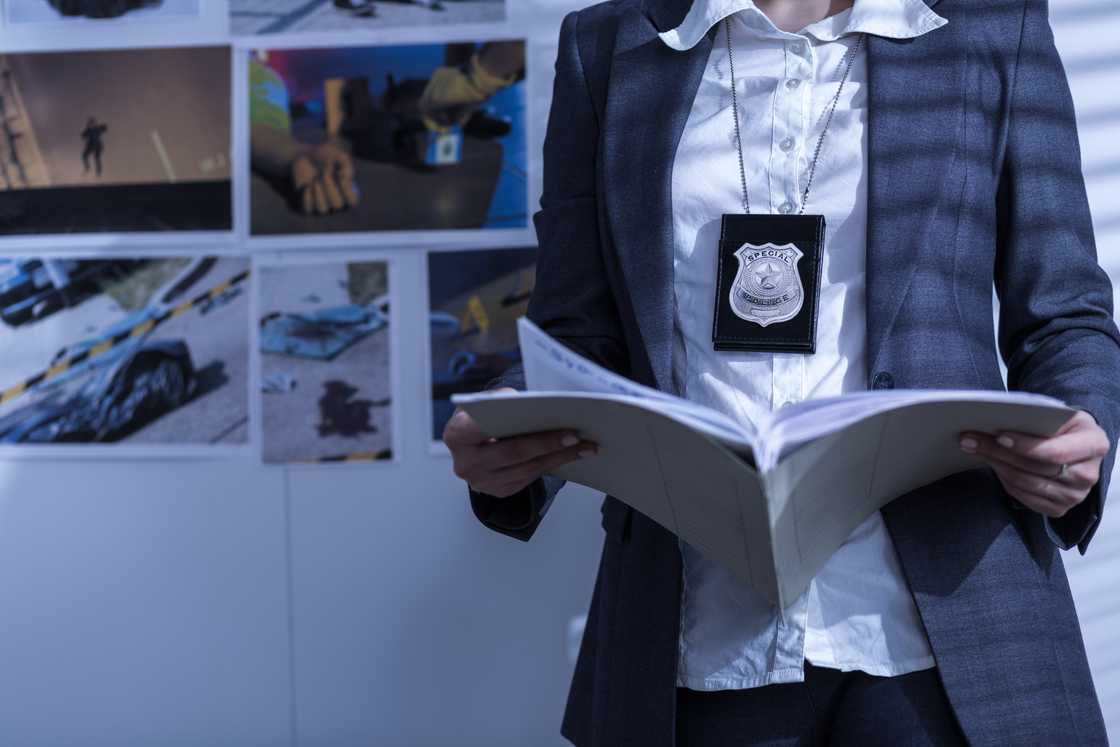
Source: Getty Images
He sighed. “People say too much when they don’t have evidence. That’s why we do our job.”
He handed me the report. I stared at the black-and-white lines that would never bring Jerome back, but at least gave me my name again.
When I stepped out of the station, the sun felt new.
That evening, Liza came over with adobo and a long hug. “The police announced it. They’re saying you’re innocent.”
Innocent. What a strange word for something I never did.
The same social media that dragged me began to post apologies. “Turns out it was a leak. Forgive us, sis.” “She didn’t deserve that.” “Rest easy, Jerome. It was nobody’s fault.”
But Jerome was still gone.
The city moved on, but grief sat with me like a second skin.
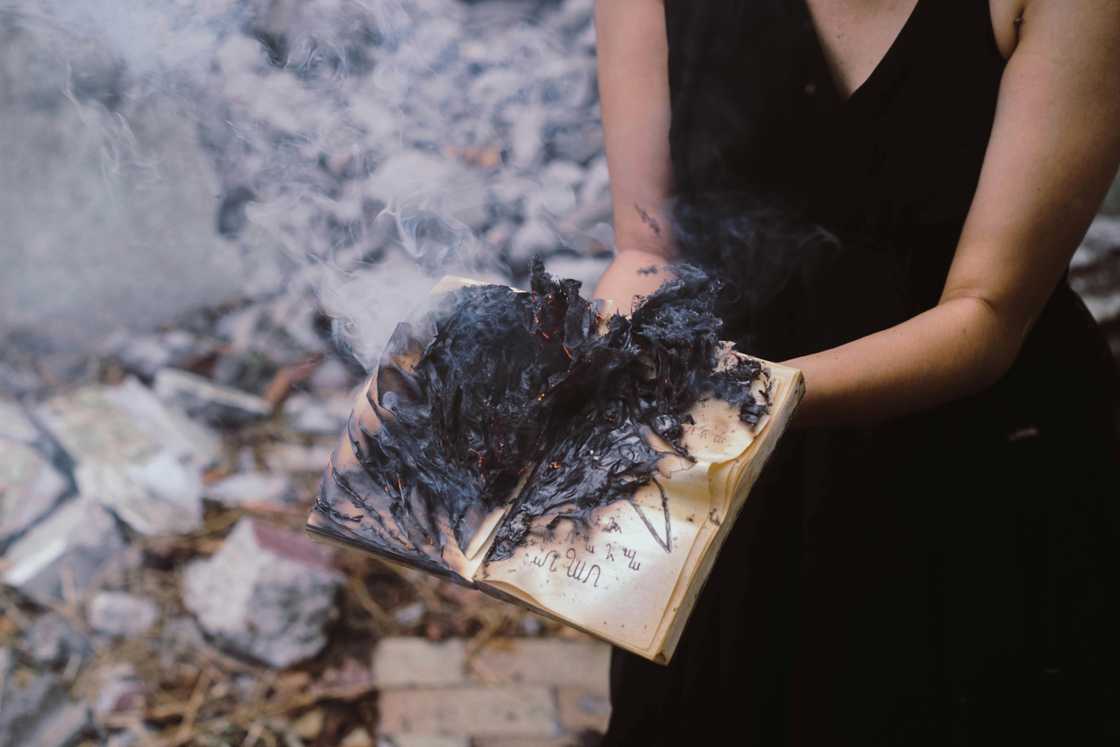
Source: UGC
The police escorted me back to the apartment one final time. I wanted to collect what was left—our wedding album, a cracked mug, and a notebook where Jerome had scribbled ideas for his tech start-up.
Officer Dela Cruz stayed at the doorway, letting me move slowly through the ruin of our home.
As I turned to leave, he said quietly, “Ma’am Maria, I’ve seen many cases. You and your husband loved each other. Don’t let the world rewrite that.”
I nodded, holding back tears. “Thank you, Officer.”
He smiled—small, genuine, the first smile I’d seen in weeks.
Two days later, he called again. “The case is officially closed. I just wanted you to hear it from me.”
That night, I dreamed of Jerome—standing by the gas stove, smiling as he stirred noodles, humming that off-key song he always sang.
I woke up sobbing, whispering into the empty room, “I forgive you for the valve.”

Source: Getty Images
A month passed, then two. My colleagues visited. My headteacher asked me to resume part-time.
Slowly, life returned in fragments.
One Sunday, Liza took me to church. During testimony, she squeezed my hand. “You survived. That’s your miracle.”
After the service, strangers approached me—some who had shared those cruel posts. One woman even knelt, crying. “I’m sorry, sister. We believed lies.”
I lifted her gently. “We all did.”
When I finally reopened my social media, the apology messages were overwhelming. They didn’t erase the pain, but they softened it.
One read: “Sometimes love stories end before we understand them. Forgive our ignorance.”
I smiled faintly. The world had condemned me before the evidence spoke. But when it did, truth restored what gossip had taken.
Officer Dela Cruz called one last time to confirm the paperwork. Before hanging up, he said, “It’s over now. Take care of yourself.”
“I will,” I said.

Source: Getty Images
As I ended the call, I looked at Jerome’s framed photo on my nightstand. He was still smiling, forever thirty-four.
When I think back on those months, what hurts most isn’t the loss—it’s the noise that followed. The way people rushed to fill the silence with suspicion.
In grief, I learned that truth doesn’t shout. It waits. It stands quietly while rumour screams, and then one day, it speaks with evidence.
The forensics didn’t just clear my name; they restored my faith in patience, in justice, in God.
Sometimes I wonder if Jerome knows how many people learned from his death. How many now check their gas valves carefully? How many couples talk instead of accusing?
I no longer fear the whispers. They have burned out like the fire that started it all.
I light a candle every night for him—not out of guilt, but gratitude. For the love we had, flawed and fierce.
The lesson is simple: evidence heals what gossip harms. But the deeper question remains: why do we believe the noise before we seek the truth?
This story is inspired by the real experiences of our readers. We believe that every story carries a lesson that can bring light to others. To protect everyone’s privacy, our editors may change names, locations, and certain details while keeping the heart of the story true. Images are for illustration only. If you’d like to share your own experience, please contact us via email.
Bagong feature: Tingnan ang mga balitang para sa'yo ➡️ hanapin ang "Recommended for you" block at mag-enjoy!
Source: YEN.com.gh










